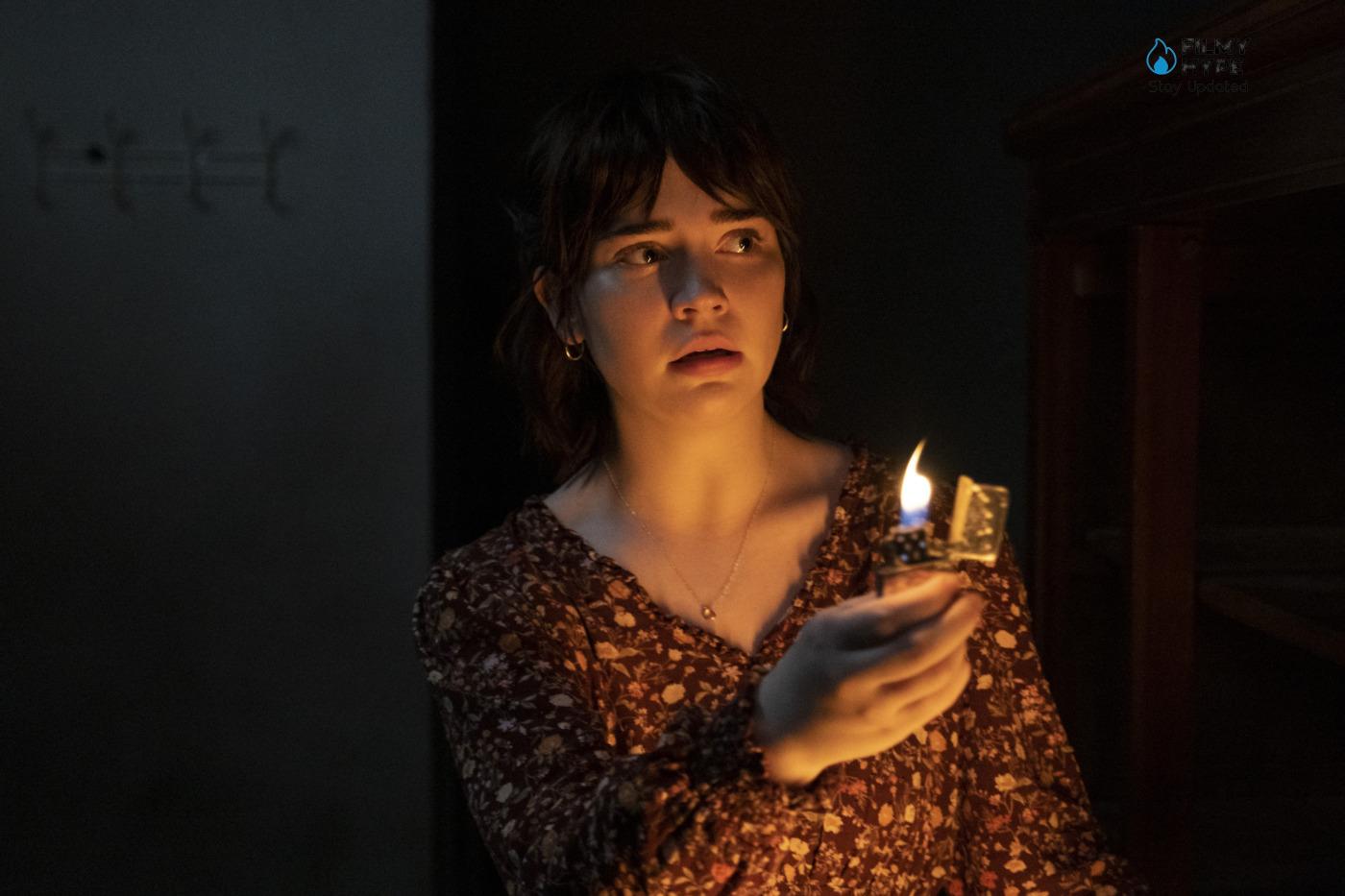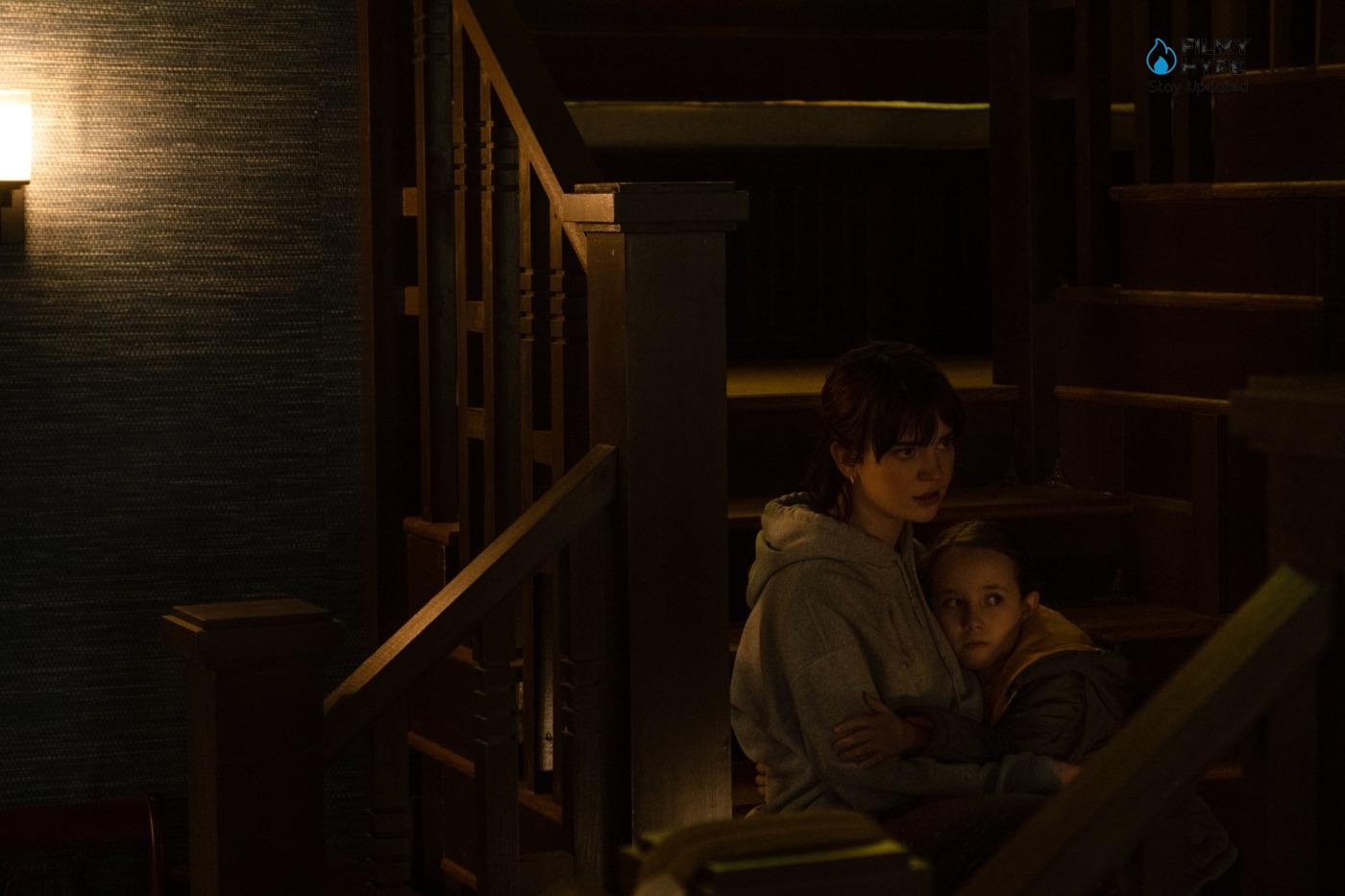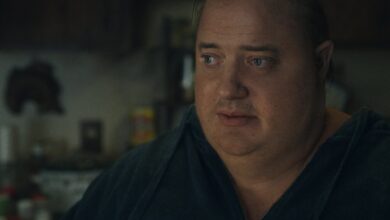The Boogeyman Review: Feel Recognizable and Familiar From The Very First Shot
Cast: Chris Messina, Sophie Thatcher, David Dastmalchian, Marin Ireland, Vivien Lyra Blair
Director: Rob Savage
Where to Watch: In Theaters
Filmyhype.com Ratings: 3/5 (three stars)
The Boogeyman is a predictable horror film that tries to be interesting without ever really daring and to the end. That of the black man is a primordial fear that, in one way or another, we all know, thanks to the adults who have instilled in us the fear of the unknown from an early age that observes us in the dark, often associated with “bad children” or disobedient. The story of the black man in the closet or the closet is also known thanks to a particular strand of horror films that have always played with these childhood fears and their persistence through the ages. In this sense, The Boogeyman is indistinguishable from other similar stories already told. Based on the story The Baubau by Stephen King and directed by Rob Savage, the film, to be released on June 2, 2023, tries to take up different clichés and gender stereotypes, attempting to rework them through a deeper narrative closely connected with human pain.

Stanley Kubrick, John Carpenter, Brian De Palma, David Cronenberg, George A. Romero. And again Rob Reiner, Bryan Singer, Frank Darabont, Andy Muschietti. The name of Rob Savage (Host, 2020) is now added to the long list of filmmakers who have confronted the film adaptation of a literary work by Stephen King. The selected title is that of The Boogeyman, a 1973 story that appeared in one of the issues of Cavalier magazine that year and was subsequently published in the “Night Shift” collection. A project with a long and troubled gestation written by Scott Beck, Bryan Woods, and Mark Heyman, interrupted in 2019 – during the acquisition process of 20th Century Fox by Disney – initially conceived for the Hulu streaming platform and finally entrusted to distribution cinematic.
The Boogeyman Review: The Story Plot
After the untimely death of their mother, Sadie (Sophie Thatcher) and Sawyer (Vivien Lyra Blair) begins to sense a strange presence in their home. The lack of emotion of the father, Will (Chris Messina), doesn’t help at all; he is too busy stifling his pain, devoting himself to the work of a psychologist, and trying to rationalize the situation. Thus, what initially seems simple disturbances related to their loss begin to transform into something more present and intense, not only on a psychological level but also physically, soon transforming the dimension of personal pain into a sort of dark and out-of-control manifestation. which eschews any identification whatsoever. There seems to be something in their house, an indefinite and ravenous monstrosity to take the two girls, forever disturbing the pain of a family that is trying to rebuild their shattered lives forever.
The Boogeyman Review and Analysis
One of the most interesting aspects of The Boogeyman lies in its constant interplay between perceived reality and that potentially perceivable by its young protagonists. The only thing we know for sure is that both suffer terribly from missing their mother and that each deals with the situation in their way. Mourning is therefore central to every development of the story, outlining from the outset a path that always takes into account the feelings of the characters involved, even about the scariest things that happen to them. At the same time, the narration is punctuated by a series of moments in which we talk about the loss, in which we try to face it and overcome it rationally, insinuating a constant question to the viewer: is what happens real?
Dealing with pain like this isn’t easy at all, especially at a young age. The director, therefore, chooses to move in the dimension of undefined horror, metaphorizing, at least in appearance, what happens to the two protagonists. Through very sensitive issues, The Boogeyman traces a terrifying path in which everything seems to have a different meaning, developing a narrative that moves simultaneously on two fronts: the subjective-emotional one and the tangible and horror one. Such an approach is certainly interesting, even if the execution is not particularly effective. Despite the underlying message, The Boogeyman does not stand out for its originality, even though it tries in every way to go beyond appearances.

Imagine the classic monster movie where an undefined entity tries to eliminate the protagonists using a series of tricks, deceptions, and absurd abilities. Well, all of The Boogeyman‘s entertainment starts from this premise, presenting a series of rather predictable horror events as a whole, without ever going beyond some clichés that fans, unfortunately, know very well. There are attempts to dust off the genre, even if the entire structure is based on choices that are too safe and have already been seen elsewhere. The choice to work on the psyche of the protagonists, in particular of one of them, is the most interesting and successful, projecting the story into a dimension that constantly fluctuates between difficult and painful reality and indefinite and threatening imagination.
However, the rest is quite superficial and not very original, with a plot that tries to scare you through relatively lazy and rather intuitive jump scares if you are used to these films. There are numerous elements at play along The Boogeyman‘s journey, the countless references to horror movies and TV series are one example, but they lack real relevance. The result is a feature film that seems to want to communicate a lot without ever exceeding its pre-established limits. The ideas are there, but in practice they are never fully exploited, looking for a series of concepts that unfortunately remain suspended in the easy scare and pseudo-psychology of cliches that never fully materialize.
Among flashes of adolescent complications, father-daughter relationships, and analysis sessions, The Boogeyman wanders confused, in the dark, in search of his own identity, weighed down perhaps by a paper counterpart to which he feels he must do justice and from which, at the same time, try to detach. Savage’s film, after an incipit of undoubted value, begins to get lost, to go around in circles, disoriented. It seems to attempt the path of psycho-horror a la Babadook, but the failure to work through mourning, a central theme in Jennifer Kent’s successful 2014 debut, ends up being more of an accessory tool than anything else, without ever being able to rise to the main focus of the narrative.
The Boogeyman, after having explored various paths, is thus content to take the simplest and most predictable path, transforming the conflict into a very unoriginal monster hunt. A hunt for an alien seen and seen again, with a design all too attributable to that of the horrifying creatures of A Quiet Place – whose screenplay, together with John Krasinsky, is not surprisingly also credited by Scott Beck and Bryan Woods. The result, sadly, is a product that struggles to escape the anonymity of the conventional horror scene. A work that replaces the atavistic nyctophobia wonderfully outlined by King with a mostly undecided canvas based on the cadenced recurrence of a jumpscare. A film with a clear mainstream vocation in which the performance of an enchanting Sophie Thatcher – one of the unfortunate Yellowjackets of the acclaimed Showtime series – cannot be enough to leave its mark.
The Boogeyman Review: The Last Words
The Boogeyman takes Stephen King’s chilling short story and spreads it on a feature film that slavishly follows all the trappings of the Hollywood jump scare, peppering it with iconographic suggestions indebted to Stranger Things and the A Quiet Place film series. Failing miserably both in the final effectiveness and in the homage to the writer. The Boogeyman is one of those movies that feel recognizable and familiar from the very first shot, and that’s not a good thing at all, especially in terms of overall originality. The horror element is stronger than ever in the narration, focusing almost all the potential of the feature film on the most agitating moments of the plot, and trying to smooth an intuitive narration with interesting even if not in-depth ideas. In general, it is a film that entertains without fully exploiting an ever-present potential, even from an aesthetic point of view.






